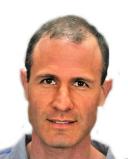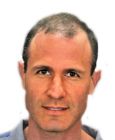Wisdom
Wisdom in the White House and Older Presidents
Do we feel that older presidents are wiser or worry about their older age?
Posted September 13, 2016
We certainly turn to older people as leaders in various domains, such as in business, law, science, education, and politics, perhaps respecting old age for certain reasons related to knowledge, and assuming experience and wisdom come along with old age. For examples, most Supreme Court judges usually qualify for seniors’ discounts (average age usually being more than 70). In terms of presidents of the United States, while Obama was relatively young, inaugurated at age 47, the two presidential candidates in the 2016 election would be the oldest (Trump, age 70) and second oldest (Hillary Clinton, 69) in history. Ronald Reagan was the oldest, just shy of 70 on inauguration day in 1981, with some controversy regarding the development of dementia while still in office in the late 1980s. If he had been elected, Bernie Sanders would have been the oldest, at 75 on Inauguration Day 2017. Canada recently elected one of their youngest leaders in history (Justin Trudeau, age 43, son of one of Canada’s most famous prime ministers Pierre Trudeau), and while being touted as a progressive prime minister, most of the media focuses on his youthful appearance rather than his knowledge of politics. There may be good reason we turn to older adults, who often have greater experience and wisdom, even when people may also hold some negative stereotypes about aging and older adults—but these stereotypes can be turned in terms of focusing on what younger adults may lack, as illustrated in this famous quote from then 73 year old president Ronald Reagan, in a 1984 presidential debate against much younger Walter Mondale (then age 56):
I will not make age an issue of this campaign. I am not going to exploit for political purposes my opponent’s youth and inexperience.
—Ronald Reagan, 1984 presidential debate against Walter Mondale
While older adults may be viewed in a positive light in terms of being leaders, does being a president place added stress which can make you age faster? One common observation in the media is that presidents seem to “age faster” during their presidency—with many popular before and after comparison images of how being president can lead to premature aging. Grey hairs emerge, wrinkles, and perhaps some additional complaints or criticism about politics in general. Some suggest that being president makes you age twice as fast, given the day-to-day stress and challenges associated with the job, not to mention more traumatic events (as Reagan survived an assassination attempt). However, some research suggests that presidents don’t age any faster during presidency, and in fact, American presidents are more likely to outlive other men their age. In addition, Clinton and Trump both have another reason to expect relatively long, healthy lives, as high-income affluent Americans tend to live substantially longer than lower-income people.
In addition, old age is relative and related to the expected lifespan of the times. When Theodore Roosevelt was inaugurated in 1901, he was only 42 years of age, but that was about five years away from the white-male life expectancy at birth at that time. At 43, Roosevelt was the youngest president sworn in, but, in 1901, he was only around five years away from the white-male life expectancy at birth. While this year's candidates are much older in years, more people today are living longer, so while presidential ages have climbed, so has life expectancy.
Thus, while much is being made about the current health of Hillary Clinton, and Donald Trump’s medical records, the data suggest they are in good shape based on the lifespan of past presidents.


